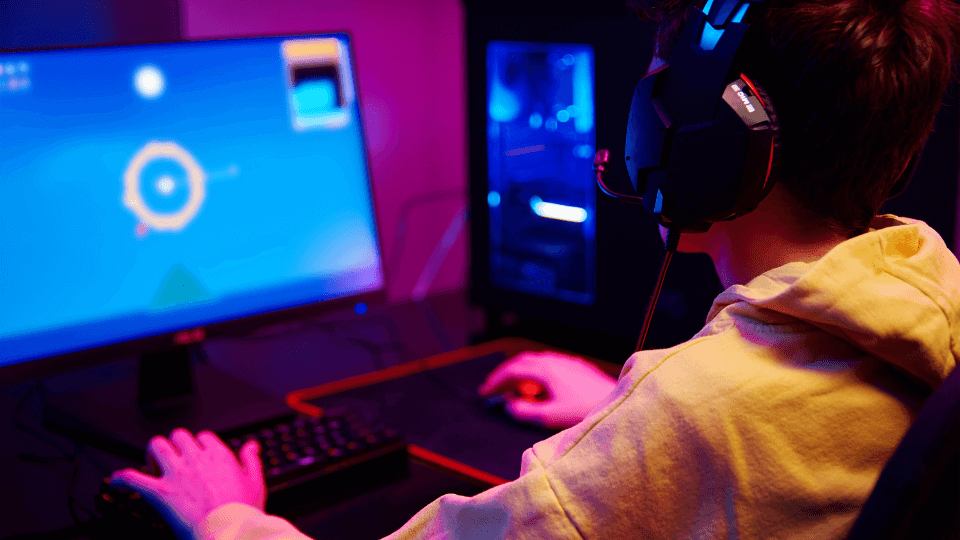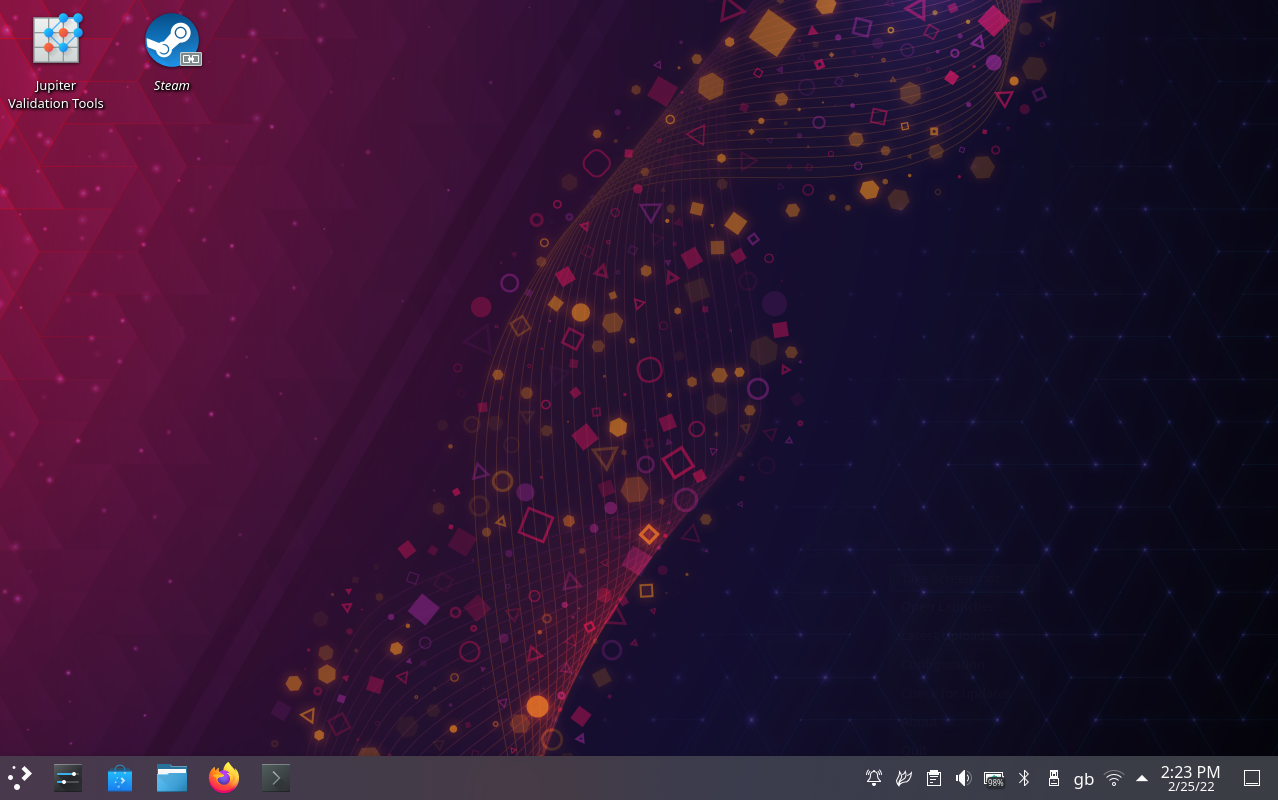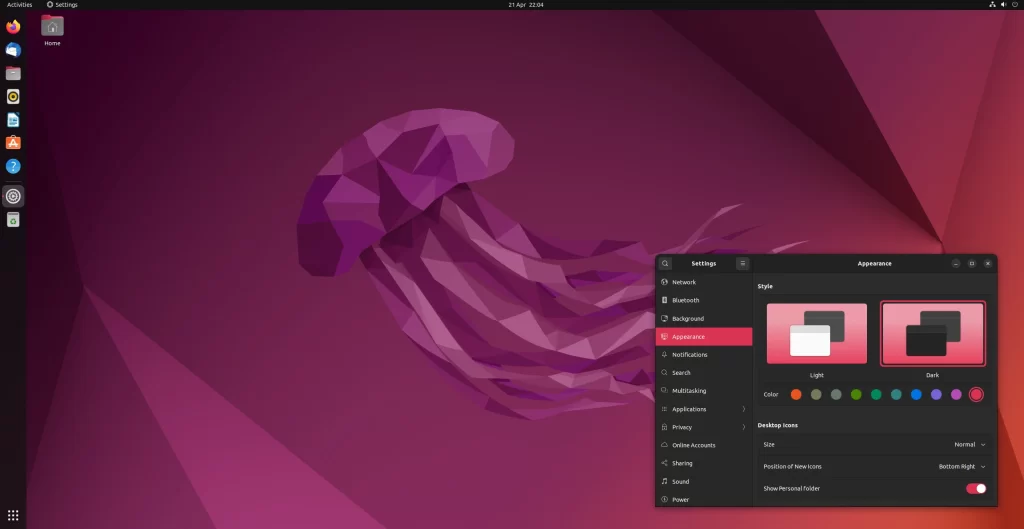
In the swiftly changing landscape of the digital era, gaming has evolved to become more than just entertainment. It is a lifestyle, a community, and for some, a career. Choosing the best operating system for gaming can significantly impact your gaming experience.
This guide meticulously reviews the top 5 best operating systems for gaming in 2024, catering to the needs and preferences of diverse gamer demographics. Our objective is to arm you with the necessary information to make an informed decision based on performance, game compatibility, graphics support, community backing, features and customization, ease of use, and cost.
Whether you’re a casual gamer or a professional streamer, understanding the nuances of each operating system can elevate your gaming setup to unparalleled heights. Navigate the world of gaming with confidence, knowing you have the best operating system powering your adventures.

Windows 11 solidifies its position as one of the best operating systems for gaming, thanks to its cutting-edge features and robust gaming support. Microsoft’s latest iteration brings significant improvements over its predecessors, catering specifically to the needs of gamers.
Offering unparalleled game compatibility with a vast library of titles, Windows 11 is designed to run both new releases and beloved classics. Its integration with DirectX 12 Ultimate ensures superior graphics and smoother performance, making it the go-to choice for demanding gaming sessions.
With features like Auto HDR and DirectStorage, Windows 11 enhances game visuals and reduces load times, respectively. The operating system also emphasizes personalization, allowing gamers to customize their gaming environment to their liking.
Backing from a vast community and Microsoft’s consistent updates keep Windows 11 at the forefront of gaming technology. The operating system benefits from extensive support forums, regular patches, and updates that contribute to a seamless gaming experience.
While Windows 11 comes pre-installed on many new PCs, upgrades from Windows 10 are available at no extra cost for eligible devices. This accessibility further cements its status among the best operating systems for gaming, offering a high-value proposition for gamers worldwide.
Windows 11 exemplifies excellence in gaming, combining performance, compatibility, and user-centric features. Its position as a leading gaming operating system is well-deserved, offering something for every kind of gamer.

macOS Monterey stands out as a unique choice among the best operating systems for gaming, catering to those who prioritize a seamless integration of gaming with productivity and creative workflows. Apple’s focus on performance and security, alongside its sophisticated ecosystem, makes Monterey a noteworthy contender.
While traditionally not the first choice for hardcore gaming, macOS Monterey has made significant strides in expanding its game library through platforms like Apple Arcade and compatibility with external GPUs. Its optimization for M1 chips delivers impressive performance for compatible games.
Monterey introduces features such as Universal Control and AirPlay to Mac, enhancing gameplay experiences by easily connecting and extending to other Apple devices. However, customization options for gaming environments are more limited compared to other operating systems.
The Apple ecosystem is known for its robust support and dedicated community. Gamers using macOS Monterey can benefit from seamless updates and a secure gaming environment, though the gaming community size and direct support for gaming-specific issues may not match that of more traditional gaming platforms.
macOS Monterey is available as a free update for Apple users, making it an accessible choice for those already within the Apple ecosystem. However, the initial cost of Apple hardware, required to run Monterey, can be a significant investment compared to other gaming setups.
macOS Monterey positions itself as an intriguing option among the best operating systems for gaming for users who value the integration of their gaming, work, and creative endeavors, offering an experience that, while not gaming-first, is increasingly gaming-friendly.

SteamOS comes to the forefront as a specialized gaming operating system, developed by Valve Corporation for the Steam Machine gaming platform. It carves a niche for itself among the best operating systems for gaming, especially for those deeply integrated into the Steam ecosystem. The focus here is on delivering a console-like experience on the PC, blending the extensive game library of Steam with a user-friendly interface.
SteamOS is based on Linux, offering a stable and efficient gaming environment. It supports a wide range of Steam games directly out of the box, with ongoing efforts to improve compatibility with both existing and upcoming titles through the Proton compatibility layer. This commitment ensures that gamers have access to thousands of games without the need for complicated setups.
One of the defining features of SteamOS is its Big Picture mode, which optimizes the interface for use with TVs and game controllers, making it ideal for living room gaming setups. The operating system is open source, allowing for extensive customization and tweaking by the community. This openness fuels innovation, with numerous community-driven enhancements available to tailor the gaming experience.
Being part of the Steam ecosystem, users of SteamOS benefit from robust community support, including forums, guides, and direct assistance from Valve through Steam support. The platform continually evolves, with updates that address bugs, enhance performance, and introduce new features, keeping it competitive and aligning with gamers’ evolving expectations.
SteamOS is free to download and install, representing an excellent value proposition. It’s particularly appealing for gamers looking to repurpose older hardware into dedicated gaming machines or for those assembling a custom build. However, it’s important to note that being Linux-based, it may require a bit of technical acumen for initial setup and troubleshooting.
In summary, SteamOS distinguishes itself as one of the best operating systems for gaming for enthusiasts looking for an alternative to Windows, offering a seamless bridge between PC gaming’s flexibility and console gaming’s simplicity. Its integration with the Steam platform, combined with the ability to customize and tweak the system, makes it a compelling choice for dedicated gamers.

Ubuntu emerges as a versatile choice among the best operating systems for gaming, particularly for those who prefer an open-source environment. Its user-friendly nature and the widespread support from the community make it increasingly popular for gaming.
Ubuntu stands out for its strong performance and compatibility with a wide range of games. Paired with Steam’s Proton project, it can run a significant number of Windows-based games, making it a formidable player in the realm of the best operating systems for gaming. Its compatibility with various hardware configurations also ensures a smooth gaming experience for most setups.
Ubuntu’s openness allows for extensive customization, from the desktop environment to the kernel itself. Gamers can optimize their systems for performance or functionality, tailoring Ubuntu to fit their gaming needs precisely. The operating system also comes with a vast array of free software, further enhancing its appeal.
The Ubuntu community is one of its greatest assets, offering extensive documentation, forums, and direct support to help gamers get the most out of their system. Regular updates and a strong focus on security ensure a reliable gaming platform.
Ubuntu is free to download and install, presenting an attractive option for gamers looking to maximize their budget. Its accessibility is further supported by comprehensive documentation and community resources, making it a welcoming platform for newcomers to Linux.
In conclusion, Ubuntu stands as an excellent choice for gamers seeking a cost-effective, customizable, and well-supported operating system. Its growing compatibility with a broad range of games solidifies its position among the best operating systems for gaming, appealing to both novice and experienced gamers alike.

Chrome OS is often overlooked when considering the best operating systems for gaming, largely due to its initial design focus on web-based applications. However, recent developments have expanded its gaming capabilities, making it a more viable option for casual gamers.
Chrome OS’s lightweight nature allows it to run smoothly on a variety of hardware, including lower-end devices. Its compatibility with Android apps through the Google Play Store and support for Linux applications has opened up a new realm of gaming possibilities, including access to numerous mobile and indie games.
While not as customizable as other operating systems mentioned in this document, Chrome OS offers a clean, user-friendly interface that is ideal for those who prefer simplicity. The seamless integration with Google services and applications enhances the user experience, providing a unique ecosystem for productivity and leisure, including gaming.
The support for Chrome OS comes directly from Google, ensuring regular updates and security patches. The community surrounding Chrome OS, while smaller than that of more established gaming operating systems, is growing, with forums and online resources becoming increasingly available.
Chrome OS comes pre-installed on Chromebooks, which are known for their affordability. This makes them an accessible option for casual gamers or those on a budget. The operating system’s simplicity also makes it easy for users of all skill levels to set up and start gaming with minimal hassle.
While Chrome OS may not be the first choice for hardcore gamers, its evolving capabilities and access to a wide range of Android and web-based games position it as an emerging contender among the best operating systems for gaming, especially for those looking for a cost-effective, simple, and integrated gaming experience.
When choosing the best operating system for gaming, several key factors must be taken into account. Compatibility with your preferred games, performance on your hardware, customization options, and cost are crucial considerations. Additionally, the level of community and technical support available can significantly influence your gaming experience and ease of troubleshooting. Ultimately, your choice should align with your gaming needs, technical expertise, and budget to ensure an optimal gaming experience.
When selecting the best operating system for gaming, performance is a critical factor that directly influences the gaming experience. High-performing operating systems ensure faster load times, smoother gameplay, and more responsive controls, essential for a competitive edge in gaming.
By comparing benchmark results and user testimonials, it’s apparent that operating systems optimized for resource utilization and speed, such as Windows and Linux distributions like Ubuntu, often stand out among the best operating systems for gaming in 2024.
The availability of games on an operating system is significantly determined by its game compatibility. The best operating systems for gaming support a wide range of gaming platforms and titles, including newer releases and classic games.
Windows continues to lead in this area due to its extensive library of compatible games while operating systems like macOS and Linux are expanding their libraries through improved compatibility layers and native support.
Immersive gameplay is heavily reliant on advanced graphics support, making it a key consideration in choosing an operating system. Operating systems that offer robust support for the latest graphics APIs, such as DirectX 12 and Vulkan, along with optimized drivers for modern graphics cards, provide a visually stunning gaming experience.
This criterion highlights the importance of choosing an operating system that not only supports high-quality graphics but also works closely with hardware manufacturers to ensure optimal performance.
A vibrant gaming community and reliable support mechanisms are invaluable resources for any gamer. The best operating systems for gaming boast active communities where gamers can share tips, mods, and solutions to common issues. Similarly, accessible support channels, including forums and official customer service, are essential for troubleshooting and enhancing the gaming experience.
Operating systems that offer an array of gaming-specific features and customization options allow gamers to fine-tune their environment for an ideal gaming session. Features such as game modes that optimize system resources, streaming capabilities for sharing gameplay, and customization options for user interfaces and settings are highly prized.
These attributes significantly contribute to an operating system’s reputation as one of the best for gaming, offering a tailored and immersive experience.
An intuitive and user-friendly interface is crucial, especially when configuring settings for optimal gaming performance. Operating systems that simplify the installation, setup, and management of games, alongside providing easy access to gaming-related settings, are preferred. Ease of use not only enhances the gaming experience but also makes the platform more accessible to a broader audience, including novice gamers.
While not the primary concern for every gamer, the cost of an operating system can be a deciding factor, particularly when budget constraints are in play. The comparison of pricing models, including upfront costs and any associated subscription fees, is crucial.
Recognizing the best operating systems for gaming encompasses evaluating not only their performance and features but also their overall value for money. For many, the availability of free operating systems like Linux distributions, which offer a substantial gaming experience without the price tag of other systems, represents a compelling choice.
In conclusion, selecting the best operating system for gaming in 2024 requires careful consideration of several crucial factors. Performance, game compatibility, graphics support, community and support, features and customization, ease of use, and cost stand as core elements that shape an optimal gaming experience.
Each operating system, from Windows with its broad game compatibility and high performance to Linux distributions offering free alternatives with extensive customization, presents unique advantages for gamers. Chrome OS emerges as a cost-effective and simplistic option, particularly for those leaning toward casual gaming.
Remember, the ideal choice depends on individual gaming preferences, hardware configuration, and budget constraints. We encourage gamers to weigh these factors diligently to identify the best operating systems for gaming that meet their needs, ensuring immersive and enjoyable gameplay in the year ahead.
The best system for gaming is subjective and depends on individual needs. Windows OS is widely recognized for its extensive game library and compatibility with most gaming hardware. However, for those who prefer open-source environments, Linux-based systems also offer a variety of games and can be optimized for gaming.
Choosing the best operating system for gaming involves considering factors like game compatibility, performance, system requirements, and personal preferences. Opt for an OS that supports the widest range of games, offers regular updates, and aligns with your hardware capabilities.
Speed can vary based on your hardware setup and the tasks you perform. For gaming, the operating system that interacts most efficiently with your hardware will generally provide the fastest experience. Typically, the latest versions of Windows are optimized for speed, but some lightweight Linux distributions can also offer quick performance, especially on lower-end hardware.

Owen is a tech enthusiast and blogger who loves to explore the latest trends and innovations in the world of technology. He writes about topics such as artificial intelligence, blockchain, cybersecurity, and more. He enjoys sharing his insights and opinions with his readers and engaging with them in lively discussions. When he is not writing, he likes to play video games, watch sci-fi movies, and travel to new places.